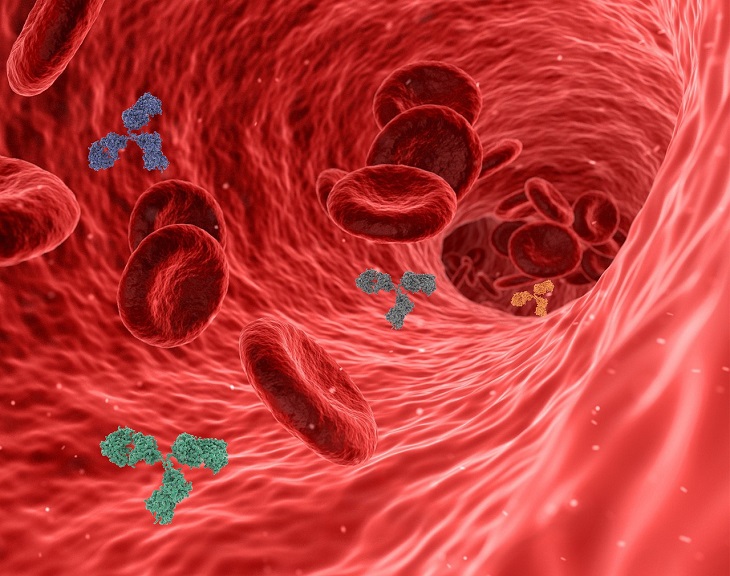Chronic fatigue syndrome is characterized as extreme tiredness or fatigue that doesn’t get better with rest. The syndrome is unlikely to be attributed to an underlying medical condition, so it can be hard to pinpoint where it’s coming from and how it started in the first place. It is sometimes referred to as myalgic encephalomyelitis or systemic exertion intolerance disease.
Since the cause of chronic fatigue syndrome isn’t easy to determine, treatment options can also be difficult to attain. Some research suggests that the condition can be caused by various ailments, including viral infection or chronic stress. The only way to diagnose chronic fatigue syndrome is by ruling out other conditions, making the illness rather difficult to diagnose and treat.
Does chronic fatigue syndrome affect the immune system?
In people with chronic fatigue syndrome, the immune system can become compromised. This is because when chronic fatigue takes a hold of the body, it can lead to a prolonged immune response where none is needed. This results in the immune system attacking the body’s own healthy tissues.
Chronic fatigue syndrome is not an autoimmune disease per se, but it does share a significant amount of features with such conditions. Researchers believe that is affects the immune system in several ways, including the overproduction of cytokines; lowered ability of natural killer cells to defend against pathogens; and changes in T-cell activation.

What is thymosin alpha-1?
Thymosin alpha-1 is a naturally occurring fragmented peptide. This means that is a smaller version of a protein molecule. It is made up of a 28-amino acid chain that is derived from a larger protein known as prothymosin α. It is created in tissues throughout the body, the most notable being the thymus gland.
Peptides such as thymosin alpha-1 are microscopic, but play vital roles in how well the body functions. They are the regulators of a myriad of specific bodily functions. The regulation of T-cells and immune response is thymosin alpha-1’s specific function. The thymus gland plays a big role in T-cell health as they grow; when they reach maturity, thymosin alpha-1 acts a cell signaler for the T-cells so that they know when to fight off pathogens.
What does thymosin do in the body?
Researchers have found many important processes can be affected by thymosin alpha-1. As mentioned above, one of the peptide’s biggest roles is to regulate and cell-signal for proper functioning of the immune system. It does this by directly affecting the action of the innate immune system in response to pathogens. It also regulates both the adaptive immune responses and the inflammatory response. The release of thymosin alpha-1 has been shown to increase lymphocytes to help the body ward off illness.
Thymosin alpha-1 also has the ability to heighten the body’s chances at fighting off infection. In one particular study on the effects of the peptide against COVID-19, researchers found that it could significantly reduce the risk of mortality of the viral infection by restoring T-cell numbers and reversing T-cell exhaustion.
Other conditions that have seen benefit from the use of thymosin alpha include:
- Hepatitis B and C
- HIV/AIDS
- Some forms of cancer
- Autoimmunity
- Cystic fibrosis
- Lyme disease
- DiGeorge’s syndrome
For many conditions that require a boost in the immune function, thymosin alpha-1 has been an effective supplemental treatment.

What are the benefits of taking a thymosin alpha-1 supplement?
Because thymosin alpha-1 can help regulate and boost both immune and inflammatory processes, the benefits of supplementation can lead to a higher ability to fight off infection and avoid further illness.
When the peptide stimulates T-cells, it leads to an overall better response against viruses, bacteria, and tumor cells. It gives the immune response the boost it needs to become stronger against pathogens, which leads to a better immune function overall. It has also been shown to regulate inflammation caused by diseases such as rheumatoid arthritis, psoriatic arthritis, systemic lupus, and erythematosus. Other studies have shown that the peptide has the ability to increase the efficacy of vaccinations by supporting its ability to keep infection at bay.
Overall, the benefits that can be achieved by taking thymosin alpha-1 include:
- Strengthened immune system
- Lowering of widespread inflammation
- Increase in the number and efficacy of T-cells
- Eradication of damaged and unhealthy cells to hinder multiplication
- Prevention of the spreading of disease throughout the body
- Aid in recovery from chronic fatigue
- Protection against oxidative stress
Other promising research has shown thymosin alpha-1 to be effective in treating a wide variety of cancers, although more study into the area will need to be conducted in terms of what it lacks when it comes to tumor targeting.
Is thymosin alpha-1 safe?
Thymosin has been used in the treatment of viral infections and immune disorders for over four decades, and it is generally considered to be a safe and effective supplement for boosting immune function, warding off illnesses, and improving the symptoms of other chronic conditions.
Vital RX’s Immune Health Subscription Box includes thymosin alpha-1 to help boost immune function. Without a properly functioning immune system, the body is susceptible to chronic disease, illness, and infection, so if your system needs a boost, supplementation might be the answer.
Featured image by Dimitrisvetsikas1969 on Pixabay